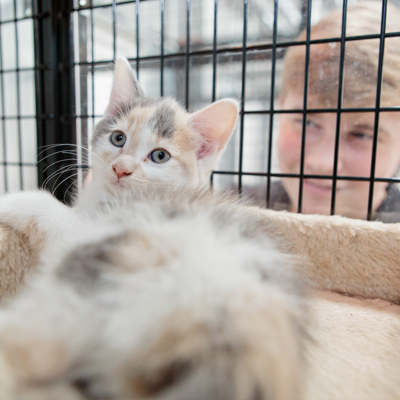About the course
Key Information
Location: Preston Campus
Course length: 10 Weeks
Start date: Wednesday 14th January 2026
Entry requirements & additional information
Animal Studies
Britain is well regarded as a nation of animal lovers, from companion pets to large animal collections. This has resulted in a multi-million pound industry, ranging from well known national pet feed companies to pet stores, catteries and kennels and numerous other businesses providing for the needs of animals.
If you care about animals and have a deep interest in their health and wellbeing, Myerscough provides an excellent opportunity for you to further your studies. You'll develop a range of skills and have the opportunity to care for a range of animals including dogs, cats, rabbits and ferrets, farm animals, reptiles and amphibians and a range of invertebrates.

Our Animal Studies Centre
Myerscough College’s Animal Studies Centre has tripled in size after the completion of a £3 million extension and major refurbishment. The new Animal Studies Centre features specialist classrooms, dedicated indoor and outdoor areas for different animal groups, as well as spacious private rooms, reception and study areas, all fully equipped with the latest I.T technology.
The Animal Studies Centre also offers a range of services to the public, from grooming and healthcare through to behaviour classes and hydrotherapy for injury recovery.
